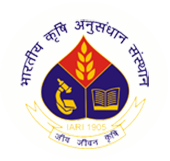 |
भा.कृ.अ.प. - भारतीय कृषि अनुसंधान संस्थान | ICAR-Indian Agricultural Research Institute |
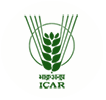 |


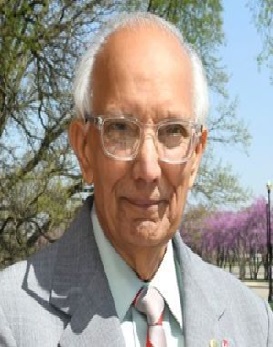
Dr. Rattan Lal
Awarded in (2021)
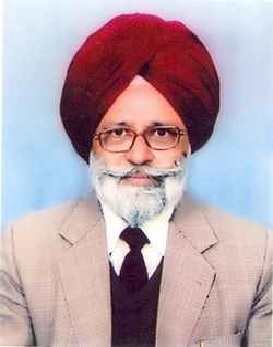
Dr. Baldev Singh Dhillon
Awarded in (2019)
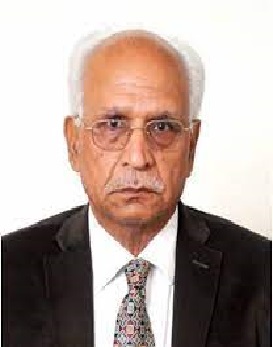
Dr. Brahma Singh
Awarded in (2014)
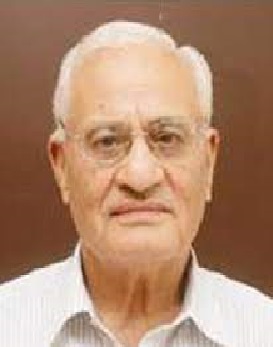
Dr. Krishna Lal Chadha
Awarded in (2012)
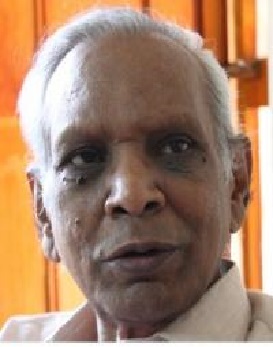
Dr. Ebrahimali Abubacker Siddiq
Awarded in (2011)
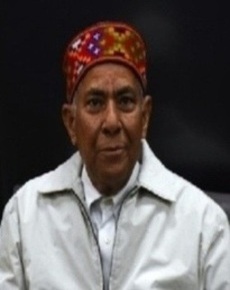
Vijaipal Singh
Awarded in (2005)
Awarded in (2021)
Rattan Lal estimates he was born in 1944 in the small farming village of Karyal in West Punjab, India. In 1947, when India gained independence, Lal’s Hindu family found themselves in the newly partitioned Pakistan. They departed and resettled as refugees in Rajaund, Haryana, India, about 100 miles northwest of Delhi. Lal had the chance to study soils more upon entering Punjab Agricultural University in Ludhiana after earning a scholarship for graduating at the top of his class from his two-room school in Rajaund in 1959. He completed his his M.Sc. at the Indian Agricultural Research Institute in Delhi. Starting in 1970 at the International Institute of Tropical Agriculture (IITA) in Nigeria, Lal began addressing the issue of soil erosion and degradation in sub-Saharan Africa. He found that deforestation and agricultural cultivation exposed the soil to the harsh tropical climate, causing severe erosion. What’s more, removing the plant residue at harvest robbed the soil of nutrients, organic matter and organic carbon, making it harder and harder each season for farmers to grow a viable crop. Dr. Lal serves as Distinguished University Professor of Soil Science and founding Director of the Carbon Management & Sequestration Center at The Ohio State University (OSU). From his humble beginnings as a refugee growing up on a small subsistence farm in India, his determination to learn and succeed in school propelled him to become one of the world’s foremost soil scientists. His pioneering research on the restoration of soil health in Africa, Asia and Latin America led to revelations that impacted agricultural yields, natural resource conservation and climate change mitigation. The agricultural practices Lal advocated are now at the heart of efforts to improve agriculture systems in the tropics and globally.
Because of Lal’s leadership in linking soil carbon to climate change, three separate United Nations Climate Change Conferences adopted his strategy of restoring soil health as a means to sequestering carbon. This gave rise to the “4 per 1000” Initiative to increase soil carbon at an annual growth rate of 0.4 percent through implementing the conservation farming practices Lal had already adapted to regional conditions. Lal’s proposals on soil health closely tie into four of the 17 Sustainable Development Goals. In 2007, he was among those recognized with a Nobel Peace Prize Certificate for his contributions to the Intergovernmental Panel on Climate Change (IPCC) reports when the IPCC was named co-recipient of the Prize. Prior accolades recognizing Dr. Lal for the exceptional energy and insight he applies to the crusade for conservation around the world include the Japan Prize (2019), the GCHERA World Agriculture Prize (2018), the Glinka World Soil Prize (2018), the Liebig Award (2006), and in India, the Swaminathan Award (2009) and the Norman Borlaug Award (2005). Dr. Rattan Lal, received the 2020 World Food Prize for developing and mainstreaming a soil-centric approach to increasing food production that restores and conserves natural resources and mitigates climate change.
Awarded in (2019)
Born on June 27, 1947 at village Doburji, in the erstwhile Tarn Taran tehsil of Amritsar district, Dr. Baldev Singh Dhillon has outstanding academic credentials. He obtained his Doctorate from Indian Agricultural Research Institute (IARI), New Delhi, M.Sc. from Punjab Agricultural University (PAU), Ludhiana and B.Sc. from Khalsa College, Amritsar. He has bagged many prestigious scholarships/ fellowships that included post-doctoral fellowships namely German Academic Exchange Service (DAAD) Fellowship, Alexander von Humboldt Fellowship; University of Hohenheim (होहिनहाइम) fellowship to work at University of Hohenheim in Germany and Alexander von Humboldt Europe Fellowship to work at University of Birmingham, UK. He served PAU as Director of Research, Director (Seeds) and Maize Breeder; the Indian Council of Agricultural Research (ICAR) as Assistant Director General, and Director, ICAR-National Bureau of Plant Genetic Resources (NBPGR); and Guru Nanak Dev University, Amritsar as Director of Research. Prior to holding the reigns of PAU as VC, he was working in University of Hohenheim, Stuttgart, Germany. Earlier, he has served International Center for Maize and Wheat (CIMMYT), Mexico as an Associate Scientist. As VC, PAU, Dr Dhillon streamlined research in integrated management of natural resources and applied inputs (water, nutrients, agro-chemicals), integrated biotechnology with crop improvement, food technology with nutrition and processing, and in crop residue management. Professor Dhillon has served/serving as a member of many high level committees, the most important ones are: Member Governing Body of ICAR (2012 - 2015); Member, Executive Council of Indian National Science Academy (INSA) (2007); Member, Executive Council of National Academy of Agricultural Sciences (NAAS) (2003 – 2005, 2012 - 2014); Member, Executive Committee of Borlaugh Institutive for South Asia since 2012; Member, Peer Review Committee of ICAR (2016); Member, Protection of Plant Varieties and Farmers’ Rights Authority, Govt. of India (2005-2007) and Member, Punjab State Planning Board since 2011; Member, Punjab State Farmers & Farm Workers Commission since 2011. He also participated in the negotiations on FAO-International Treaty on Plant Genetic Resources for Food and Agriculture (2001-2002). Dr Dhillon has been bestowed with several awards such as: Rafi Ahmed Kidwai Memorial Prize by ICAR; Dr BP Pal Memorial Award (the apex award) and Recognition Award by NAAS; Om Parkash Bhasin Award for Science and Technology; Asian Maize Champion Award by CIMMYT; Dr NL Dhawan Lifetime Achievement Award by Maize Technologists Association of India; Lifetime Achievement Award by Punjab Academy of Sciences, Sardar Bishan Singh Samundri Memorial Lectureship Award by Guru Nanak Dev University; Dr. Joginder Singh Memorial Award by Indian Society of Genetics and Plant Breeding; Dr. HB Singh Award by Indian Society of Plant Genetic Resources, New Delhi; Appreciation Certificate by Punjab State Council for Science and Technology, and Gold Medal by ICAR-IARI. Dr Dhillon has been conferred with prestigious Padma Shri Award - 2019 by the President of India.
Awarded in (2014)
Brahma Singh was born at a small hamlet of Paladi in Muzaffarnagar district in the India state of Uttar Pradesh, on 15 December 1941. He did his schooling at the Rashtriya High School from where he passed his matriculation in 1959 and completed his junior college in 1961 from the Jat Inter College, Muzaffarnagar in 1961. Singh graduated (BSc Hons) in agriculture and agri-horticulure from the G. B. Pant University of Agriculture and Technology in 1964 and passed MSc from the same university in 1966. Subsequently, he did his doctoral studies at the Indian Agricultural Research Institute, New Delhi and secured PhD in 1970. After obtaining the doctoral degree, Singh started his career as an assistant professor at the Chaudhary Charan Singh Haryana Agricultural University, Hisar in 1970 and worked there till 1974, when he joined the Defence Research and Development Organization (DRDO) at their Uttaranchal facility of Defence Agricultural Research Laboratory as the Grade I Senior Scientific Officer. In 1979, he was transferred to the Defence Food Research Laboratory, Mysore with a promotion to the post of the Deputy Director. The next assignment as the Director at the Defence Research Laboratory in Tezpur, Assam, a stint of five years till 1990.
Awarded in (2012)
Krishna Lal Chadha was born on 15 November 1936 in Bhopalwala, Sialkot, in the British India, presently in Pakistan. [3] [4] His schooling was at the Government High School, Jalandhar from 1948 to 1951 after which he joined Panjab University, Chandigarh from where he secured BSc (Agriculture) in 1955 and MSc (Horticulture) in 1960. Thereafter, he joined the Indian Agricultural Research Institute, New Delhi for higher research and obtained a PhD in 1964. He joined the Indian Institute of Horticultural Research (IIHR), Bengaluru in 1969 as Senior Horticulturist. In 1972, he moved to the Central Mango Research Station, Lucknow as the Project Coordinator (Fruits) and, later, got promoted as the Head of the Centre. In 1980 he became Director, IIHR, Bengaluru till 1986 when he was called to the government cadre as the Horticultural Commissioner, Government of India and later, as the Executive Director of the National Horticultural Board. In 1987, he was promoted as the Deputy Director General of the Indian Council of Agricultural Research from where he retired in 1996. In 1997, he was selected as the ICAR National Professor, [6] a post he held till 2001 and is an Adjunct Professor of the Indian Agricultural Research Institute ever since.
Krishna Lal Chadha has been conferred the doctoral degree of DSc (Honoris Causa) by the Chandra Shekhar Azad University of Agriculture and Technology in 1995. Two other universities, Orissa University of Agriculture and Technology and Rajendra Prasad Agricultural University followed suit in 2008 and 2009 respectively. He received Borlaug Award in 1984, Om Prakash Bhasin Award in 1992, Dr. H. M. Marigowda Award in 1996, S. K. Mitra Award in 1998 and S. S. Ranade Memorial Award in 1999. In 2012, the Government of India included Chadha in the Republic Day honours list for the award of Padma Shri.
Awarded in (2011)
Ebrahimali Abubacker Siddiq (born 1937) is an Indian agricultural scientist, whose research in genetics and plant breeding is reported to have assisted in the development of various high-yielding rice varieties such as dwarf basmati and hybrid rice. The government of India honoured Siddiq in 2011 with the fourth-highest civilian award of Padma Shri. E. A. Siddiq was born in 1937 in Ilayangudi, Small Town in Sivaganga District, Tamil Nadu, India. His graduate studies were completed in Botany (1959) from the University of Madras following which he obtained masters (1964) and doctoral degrees (1968) in Cytogenetics, under the supervision of renowned botanist, M. S. Swaminathan, from the Indian Agricultural Research Institute (IARI). His career started at his alma mater, the Indian Agricultural Research Institute, as a cytogeneticist in 1968. In 1987, he returned to India as the Project Director of the Directorate of Rice Research, Hyderabad and worked there till 1994. The next move was to Indian Council of Agricultural Research (ICAR), New Delhi as the Deputy Director General of the Crop Science Division. Siddiq has received several honors starting with the Hari Om Ashram Trust National Award in 1976. In 1995, he received the Borlaug Award and the Rafi Ahmed Kidwai Award. In 2011, the Government of India included him in the Republic day honours, listing him for the fourth highest civilian award of Padma Shri.
Awarded in (2005)
Vijaipal Singh (born 17 January 1945 at Haridwar, Uttarakhand) is an agricultural scientist associated with the Indian Council of Agricultural Research (ICAR) and is known for his contributions to the science of rice genetics and breeding. He is well known for his contributions in developing the most popular Basmati rice variety, Pusa Basmati 1121. A post graduate and a doctoral degree (PhD) holder in Agriculture Botany from Agra University, he started his career as a research assistant at the Indian Agricultural Research Institute (IARI), New Delhi in 1968https://en.wikipedia.org/wiki/Vijaipal_Singh - cite_note-Vijai_Pal_Singh-1 and retired as a Principal Scientist at the Division of Genetics, ICAR-IARI. Singh is credited with several articles published in peer reviewed journals. In recognition of his services to the nation, he was honoured by the Government of India, in 2012, with the fourth highest Indian civilian award of Padma Shri.
Dr. Vijaipal Singh received Hari Om Ashram Trust Award by the Indian Council of Agricultural Research in 1974-75; Jawaharlal Nehru Award in 1977; B. P. Pal Memorial Award in 2005; ICAR Team Award in Crop Improvement in 2007; Third Rao Bahadur B. Viswanath Award by the Indian Agricultural Research Institute in 2006-07; ICAR Recognition Certificate in 2009; Padma Shri in 2012; Shri O.P. Bhasin Memorial Award in 2012; Doyen of Rice 2019 by Association of Rice Research Workers, ICAR-National Rice Research Institute, Cuttack and Basmati Rattan Award in 2019. He is an elected Fellow of the National Academy of Agricultural Sciences, New Delhi,
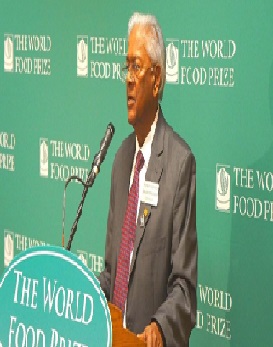
Dr. Sanjaya Rajaram
Awarded in (2001)
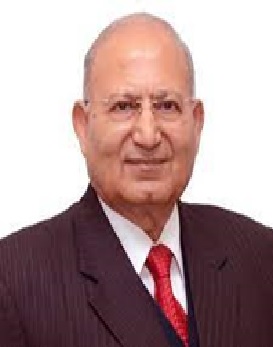
Dr. Rajendra Singh Paroda
Awarded in (1998)
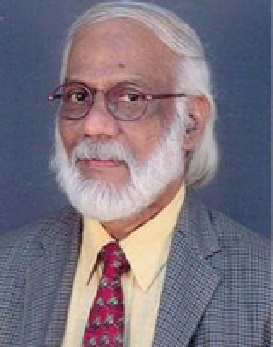
Dr. Padmanabhan Govindarajan
Awarded in (1991)
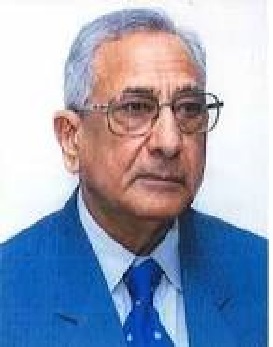
Dr. Virender Lal Chopra
Awarded in (1985)
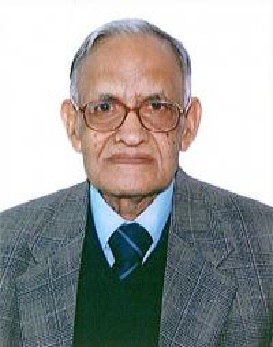
Dr. Hari Krishan Jain
Awarded in (1981)
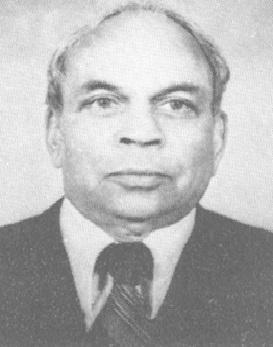
Dr. Atmaram Bhairav Joshi
Awarded in (1975)
Awarded in (2001)
Born in 1943, Rajaram grew up in a modest household near a small farming village of Raipur in Varanasi district, Uttar Pradesh. His family made a living off their 5-hectare farm growing wheat, maize and rice. Rajaram, meanwhile, went to a village school about 5 km from his home, where he completed his primary and secondary school education. A bright student, he won a scholarship to attend high school, following which he went to the University of Gorakhpur where he obtained a BSc in agriculture. Following graduation, he obtained his master’s degree from the Indian Agricultural Research Institute in New Delhi, where he studied genetics and plant breeding under Dr MS Swaminathan, renowned for his leading role in India’s Green Revolution. Rajaram began his tenure at CIMMYT in 1969 working alongside Borlaug in experimental fields of Ciudad Obregón, Toluca and El Batán in Mexico. With their base of operations in El Batán, southern central Mexico, CIMMYT is a “non-profit international agricultural research and training organisation focusing on two of the world’s most important cereal grains: maize and wheat, and related cropping systems and livelihoods,” notes their website. His most significant contribution to the discourse around plant breeding was the development of high volume ‘shuttle breeding’. According to this paper published in 1989, “Shuttle breeding uses diverse ecological environments to develop improved varieties with higher adaptability.” Borlaug would also lead efforts at breeding improved varieties of wheat in India as well, and become the scientist who helped engineer the country’s Green Revolution as well. He was awarded the Nobel Prize in 1970 for his efforts in saving millions from starvation. From 1969 to 1972, Rajaram would conduct his research and fieldwork under the supervision of Borlaug before succeeding him to lead the wheat breeding team at CIMMYT. According to the World Food Prize citation, “Like Borlaug, Rajaram had the extraordinary ability to visually identify and select for crossbreeding the plant varieties possessing a range of desired characteristics, an ability that was essential to wheat breeding in the 1980s and ’90s.” “Rajaram also developed wheat cultivars with durable resistance to rusts—the most damaging disease to wheat worldwide—through his concept of ‘slow rusting’. He used multiple genes with minor effects that slow down disease development, thereby minimizing the impact on yield without challenging the rust pathogen to mutate and overcome resistance. The varieties produced using this technique have been grown on millions of hectares worldwide. His method proved a cost-effective and environmentally sound way to control plant disease,” notes the citation he received after winning the World Food Prize in 2014. Celebrating his incredible achievement, the Indian government posthumously awarded him the Padma Bhushan, the third-highest civilian honour in 2001.
Awarded in (1998)
Dr. Rajendra Singh Paroda (born 1942 in Ajmer, Rajasthan) is an Indian agricultural scientist, did his BSc (Agriculture) (1962) from University of Rajasthan, MSc (Agriculture) (1964) from University of Udaipur and PhD (1968) from Indian Agriculture Research Institute (IARI), New Delhi specializing in genetics and plant breeding. He was Commonwealth Postdoctoral Fellow at the University of Wales, Aberytswyth, UK (1968-70). He became Director of the National Bureau of Plant Genetic Resources (1985), where he established one of the most modern gene banks in the world. He then became Deputy Director General (Crop Sciences) and later Director General, ICAR and Secretary, DARE, Government of India (1994-2001). Dr. Paroda headed the Forage Breeding Program at the Haryana Agricultural University, which led to the release of over 12 varieties at the national level. His other notable findings related to: establishing model for studying synchrony in cereals; prediction models based on genotype-environment interaction studies in cereals and forages and biometrical studies in cereals to establish the genetic architecture of yield and related attributes in wheat, barley and a number of forage crops. He also published over 250 research papers, besides being editor of more than 20 books. Dr Paroda was instrumental in revamping the National Agricultural Research System (NARS) through several policy and organizational reforms. He served as Chairman of the Global Forum on Agricultural Research (GFAR) from 1998 to 2002. He also served as Chairman and Vice-Chairman of the ICRISAT Governing Board and Member of Board of Trustees of IRRI. He also served for more than two decades as Executive Secretary of Asia-Pacific Association of Agricultural Research Institutions (APAARI). Currently, he is Chairman of the Trust for Advancement of Agricultural Sciences (TAAS). Dr. Rajendra Singh Paroda received Padma Bhushan (1998), Rafi Ahmed Kidwai Memorial Prize (1982-83), ICAR Research Team Award (1984), FICCI Award (1988), Om Prakash Bhasin Award (1992), Special Asia Pacific Seed Association Award (1995), Dr BP Pal Memorial Award by NAAS and Dr Borlaug Award. Padma Bhushan, Govt. of India, 1998 He was elected Fellow of the National Academy of Agricultural Sciences, New Delhi, Indian Academy of Sciences, Bangalore, Russian Academy of Agricultural Sciences, Academy of Sciences for the Developing World (TWAS) and the academies of Agricultural Sciences of Armenia, Georgia and Tajikistan. He was President of National Academy of Agricultural Sciences, New Delhi (1996-2001). He also got elected as Honorary Member of the prestigious Crop Science Society of America (CSSA) and the American Society of Agronomy (ASA).
Awarded in (1991)
Padmanaban Govindarajan was born on 20 March 1938 in Bangalore,India. He is a renowned biochemist and a pioneer in Indian biotechnology. He completed his BSc from Presidency College, Madras University in 1958, MSc from IARI New Delhi in 1960 and Ph.D from IISc in 1966. He worked as AssistantProfessor (1969-75), Associate Professor (1975- 80) and as Professor (1980 onwards) at IISc, Bangalore. He was Director of the Indian Institute of Science during 1994-98. He served as Honorary Professor/Emeritus Scientist (1998-2005) and Distinguished Biotechnologist (DBT) during 2003 to 2007. He worked as UGC/British Council young scientist at St. Mary's Hospital Medical School, London, U.K. (1969-70), Senior Fulbright Scholar, University of Chicago (1973-74) and Visiting Scientist/Professor, University of Chicago for a decade (1975-86). Professor Padmanaban is the recipient of many prestigious honors and awards. Notable ones are: Sarma Memorial Award (SBC); Shanti Swaroop Bhatnagar Award(CSIR); Bhasin Award in Biotechnology; Ranbaxy Award; B.R. Ambedkar (ICMR) and DSc (h.c.) from Banaras Hindu University. He is a recipient of Golden Jubilee Senior Biotechnology Fellowship award of DBT 1997; UNESCO Chair in Biotechnology (2000), Distinguished Biotechnology Award (2003), G.M. Modi Award (2005). Genome Valley Award (2007), NASI-Platinum Jubilee Chair (December 2007) and the Jawaharlal Nehru Birth Centenary Award instituted by the Indian Science Congress (2008). Recognising Professor Padmanaban’s contributions, the Government of India honoured him with the Padma Shri (1991) and Padma Bhushan(2004) awards.
Awarded in (1985)
Virender Lal Chopra was born on 9 August 1936 at Adhwal, a small village in the periphery of Rawal Pindi in West Punjab of the British India to Harbans Lal and Sukhwanti, and moving to Delhi, he did his early schooling at Ramjas School, Delhi. After securing his graduate degree with honours in agricultural science from Central College of Agriculture, Delhi in 1955 and following it up with an associateship at the Indian Agricultural Research Institute (IARI) during 1955–57, he proceeded to the Institute of Genetics, University of Cologne on a senior Humboldt scholarship. Subsequently, he shifted his base to Edinburgh in 1964 and secured a doctoral degree (PhD) in Genetics from the Institute of Genetics of the University of Edinburgh in 1967, presenting the thesis "Tests for genetic effects of irradiated or chemically treated media in Drosophila and micro-organisms".
Chopra's career took prominence when he became the director of Indian Agricultural Research Institute (IARI) in 1979 which was his first major position where he was in charge of the planning and management of research in genetics and biotechnology. He stayed at the post for one year before turning to academics as the professor of genetics at the same institution, a post he held till 1985 when he moved to National Research Centre on Plant Biotechnology as a Professor of Eminence and the director of the centre. Simultaneously he served as a member of the scientific advisory committee to the Prime Minister of India from 1986 to 1990. In 1992, the Government of India appointed him a secretary with the responsibility of the director-general of the Indian Council of Agricultural Research (ICAR), the apex agency in India for agricultural education and research. After his retirement from the ICAR in 1994, he continued his association with the agency as its B. P. Pal National Professor and in 2004, he was appointed as a member of the science council of the Consultative Group on International Agricultural Research (CGIAR), the largest research entity run on public funding in agriculture in the world. At CGIAR, he served as a member of several committees and boards of the member organizations and as its Regional Representative for Asia. He was the chancellor of Central University of Kerala, a Chancellor of the Central Agricultural University, Imphal and a member of the Planning Commission of India. An elected fellow of several science academies such as Indian Academy of Sciences, Indian National Science Academy, National Academy of Agricultural Sciences, National Academy of Sciences, India, European Academy of Sciences and Arts and The World Academy of Sciences (TWAS), he was a recipient of a number of honors including Borlaug Award, FAO World Food Day Award and Om Prakash Bhasin Award. The Government of India awarded him the third highest civilian honour of the Padma Bhushan, in 1985, for his contributions to agricultural science.
Awarded in (1981)
Hari Krishan Jain, born on 28 May 1930 in a Jain family in Gurgaon, in the Indian state of Haryana to Chameli Devi and Nemi Chand Jain, graduated in Botany (BSc hons) from the University of Delhi in 1949 after which he secured an associate-ship from the Indian Agriculture Research Institute (IARI) in 1951. Subsequently, he pursued his doctoral studies at the Aberystwyth campus of the University College of Wales, on a Science Research Scholarship of the Royal Commission, London to secure his PhD and returned to India to start his career as a cytologist at IARI in 1956. He stayed at IARI till his superannuation from service as its Director in 1983 during which time he served as the Head of Genetics Division from 1966 to 1978. In 1984, he became associated with the International Service for National Agricultural Research of the Consultative Group for International Agricultural Research (CGIAR) where he served as the deputy director general. Later, he continued his academic life at the Rajasthan College of Agriculture of Maharana Pratap University of Agriculture and Technology, Udaipur till he was appointed as the chancellor of the Central Agricultural University, Imphal. Jain has served as a member of the Scientific Advisory Committee (SAC-C) to the Government of India (1982–83) and the Uttar Pradesh State Planning Commission (1978–80). He chaired the Food and Agriculture Committee of the Bhabha Atomic Research Centre (1980–83) and the Indian chapter of the Man and the Biosphere Programme of the UNESCO (1978–83) and has been a member of the advisory committee on biotechnology of the Department of Science and Technology (1982–83). He chaired the consultative group on agriculture of the International Council for Science (ICSU) (1973) and is an Emeritus scientist of the Council for Scientific and Industrial Research, having been elected to the position in 1993. He also sat in the council of the Indian National Science Academy from 1979 to 1981 and served as the vice president of the National Academy of Agricultural Sciences from 2009 to 2011. Jain received the Shanti Swarup Bhatnagar Prize for Science and Technology, the highest award of the Council of Scientific and Industrial Research in 1966 for his contributions to biological sciences. The Indian Council of Agricultural Research awarded him the Rafi Ahmed Kidwai Award the next year and he was elected for the Jawaharlal Nehru Fellowship in 1973 for his project, A Study of the Evolving Concepts of the Genetics and their Agricultural & Social Implications. He received the fourth highest Indian civilian honor, the Padma Shri, in 1981 and he received the Borlaug Award in 1982. The Om Prakash Bhasin Award reached him in 1986 and the National Academy of Agricultural Sciences honored him with Dr. B. P. Pal Award in 1999. He is also a recipient of the B. P. Pal Memorial Award of the Indian Science Congress Association which he received in 2004.
Awarded in (1975)
Born on 17 November 1916, A. B. Joshi graduated (BSc Honours) from Nagpur University in 1937. After securing a post graduate diploma from the Indian Agricultural Research Institute, New Delhi (IARI) in 1939, he passed his MSc in 1945 and PhD in 1950 from the University of Cambridge. His career started in 1940 as a research assistant at his alma mater, IARI, where he rose in ranks to become a professor, the dean of post graduate studies (1958–65) and the director of the institution (1965–66). In 1966, he was posted at the Indian Council for Agricultural Research (ICAR) as the deputy director general, a post he held till 1972 when he returned to IARI as its director. After superannuation in 1977, he was appointed as the vice-chancellor of the Mahatama Phule Krishi Vidyapeeth, Rahuri and worked there till his retirement in 1980. He was also associated with Nimbkar Agricultural Research Institute in 1980s as an advisor and Principal Investigator of couple of projects. Dr. Joshi was a member of the Task Force on Agricultural Education of the Kothari Commission (1964–66) set up by the Government of India to advise on general principles and policies for the development of education in India. He was the co-ordinator of the ICAR sponsored Wheat Research Project (1960–66). During his tenure as the vice-chancellor of the MPKV university, he also served as a member of the Scientific Advisory Committee to the prime minister of India (1972–76). Joshi died on 3 July 2010 at the age of 93, at Pune, in Maharashtra. Joshi is known to have conducted cytogenetic research on a number of crops such as sesame, chickpea, tobacco, and Capsicum and research on the evolutionary origin of Okra (Bhindi) and Panicum maximum (fodder grass). He introduced crop improvement of wheat and cotton through quantitative genic exploitation and is known to have contributed for the success of the Green Revolution in India in the 1960s and 1970s. His researches were published by way of over 300 articles which included many monographs on sesame and cotton. He also guided 45 post graduate and doctoral students in their researches. Several Indian universities such as G. B. Pant University of Agriculture and Technology, Pantanagar, Indian Agricultural Research Institute, New Delhi, and Vasantrao Naik Marathwada Agricultural University, Parbhani (Maharashtra) awarded him DSc (honoris causa). In 1976, the Government of India awarded him the civilian honour of Padma Shri and he received the Norman Borlaug Award from Coromandel International the same year. The Indian Agricultural Research Institute instituted the AB Joshi Memorial Award in 2002, in his honour and organises an annual lecture under the name, AB Joshi Memorial award lecture.
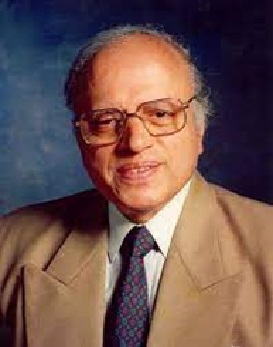
Dr. M.S. Swaminathan
Awarded in (1961)
Awarded in (2005)
Dr. M.S. Swaminathan, born on 7 August 1925, is popularly known as the Father of Green Revolution in India. He is the Founder Chairman, Emeritus Chairman and Chief Mentor of the M. S. Swaminathan Research Foundation (MSSRF) at Chennai, which he founded in 1988. Dr. Swaminathan obtained a B.Sc. degree in Zoology from the Maharajas College in Thiruvananthapuram, and also in Agricultural Sciences from the Coimbatore Agricultural College. Subsequently, he received M.Sc. degree in Agricultural Sciences (specializing in genetics and plant breeding) from the Indian Agricultural Research Institute (IARI) in 1949 and Ph.D. degree from Cambridge University, UK in 1952. Dr. Swaminathan joined the faculty of IARI, New Delhi, in 1954. He became the Director of IARI (1961-72), Director General of Indian Council of Agricultural Research (ICAR) and Secretary to the Government of India, Department of Agricultural Research and Education (1972-79), Principal Secretary in the Ministry of Agriculture (1979-80), Acting Deputy Chairman and later Member (Science and Agriculture), Planning Commission (1980-82), and Director General, International Rice Research Institute, the Philippines (1982-88). A plant geneticist by training, Dr. Swaminathan has made a stellar contribution to the agricultural renaissance of India, and is widely regarded as the scientific leader of India’s green revolution movement. His advocacy of sustainable agriculture leading to an evergreen revolution makes him an acknowledged world leader in the field of sustainable food security. The International Association of Women and Development conferred on him the first international award for significant contributions to promoting the knowledge, skill, and technological empowerment of women in agriculture, and for his pioneering role in mainstreaming gender considerations in agriculture and rural development. Dr. Swaminathan has received numerous awards and honours, including the S.S. Bhatnagar Award for his contribution to biological sciences (1961), Ramon Magsaysay Award for Community Leadership in 1971, the Albert Einstein World Science Award in 1986, the first World Food Prize in 1987, the Indira Gandhi Prize for Peace, Disarmament and Development, the Franklin D. Roosevelt Four Freedoms Medal and the Mahatma Gandhi Prize of UNESCO in 2000, and the Lal Bahadur Shastri National Award in 2007. Dr. Swaminathan is a proud recipient of some of India’s highest honours including Padma Shri (1967), Padma Bhushan (1972) and Padma Vibhushan (1989). He is a Fellow of many of the leading scientific academies of India and the world, including the Royal Society of London and the US National Academy of Sciences. He has received 81 honorary doctorate degrees from universities around the world. He was a Member of the Parliament of India (Rajya Sabha) for the period 2007-13. He also chairs the Task Force set up by the Ministry of External Affairs to oversee the projects undertaken in Afghanistan and Myanmar in the field of agriculture and was elected the “Living Legend of International Union of Nutrition Sciences” at the 20th International Congress of Nutrition held at Granada, Spain.